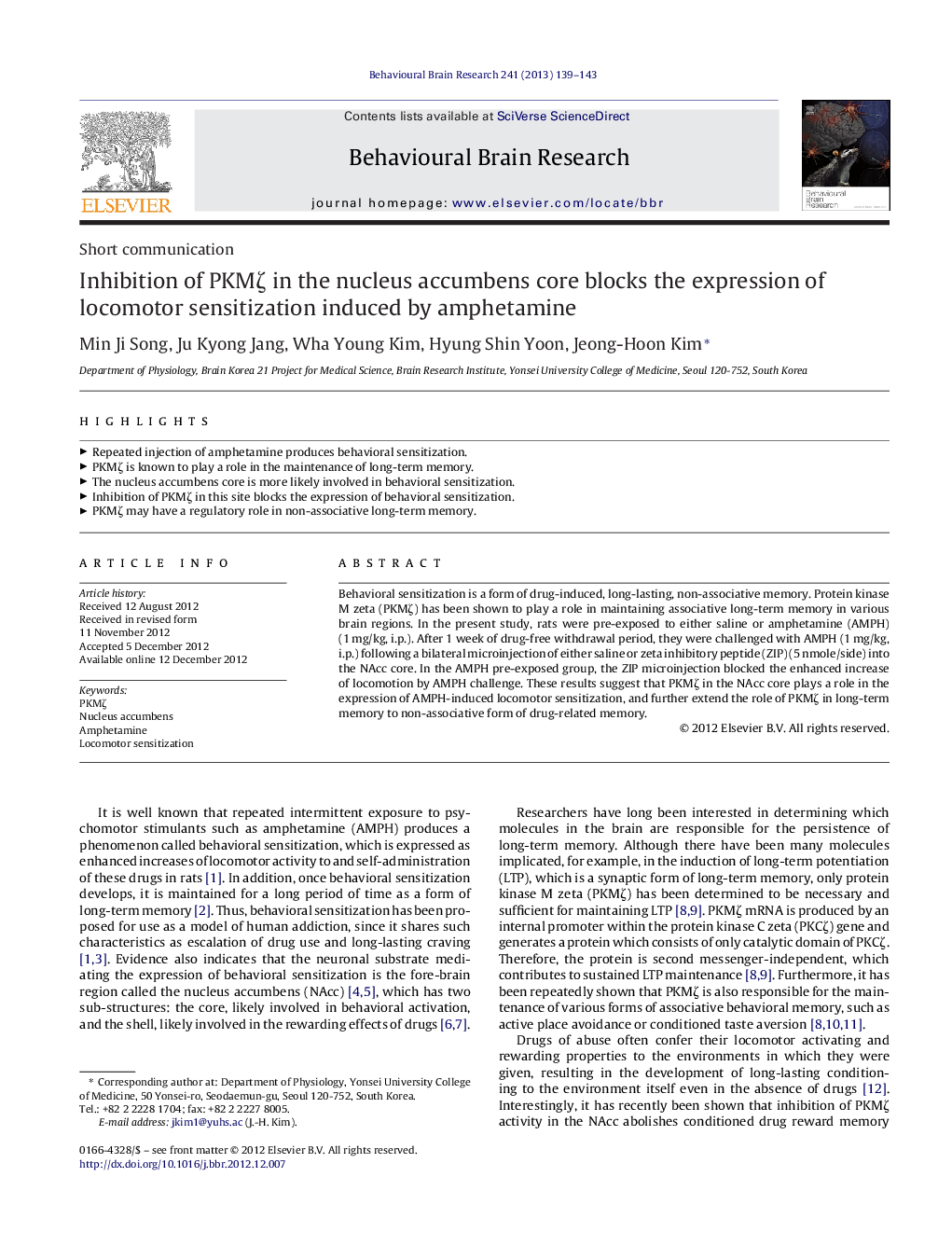| Article ID | Journal | Published Year | Pages | File Type |
|---|---|---|---|---|
| 6259230 | Behavioural Brain Research | 2013 | 5 Pages |
Behavioral sensitization is a form of drug-induced, long-lasting, non-associative memory. Protein kinase M zeta (PKMζ) has been shown to play a role in maintaining associative long-term memory in various brain regions. In the present study, rats were pre-exposed to either saline or amphetamine (AMPH) (1 mg/kg, i.p.). After 1 week of drug-free withdrawal period, they were challenged with AMPH (1 mg/kg, i.p.) following a bilateral microinjection of either saline or zeta inhibitory peptide (ZIP) (5 nmole/side) into the NAcc core. In the AMPH pre-exposed group, the ZIP microinjection blocked the enhanced increase of locomotion by AMPH challenge. These results suggest that PKMζ in the NAcc core plays a role in the expression of AMPH-induced locomotor sensitization, and further extend the role of PKMζ in long-term memory to non-associative form of drug-related memory.
⺠Repeated injection of amphetamine produces behavioral sensitization. ⺠PKMζ is known to play a role in the maintenance of long-term memory. ⺠The nucleus accumbens core is more likely involved in behavioral sensitization. ⺠Inhibition of PKMζ in this site blocks the expression of behavioral sensitization. ⺠PKMζ may have a regulatory role in non-associative long-term memory.
